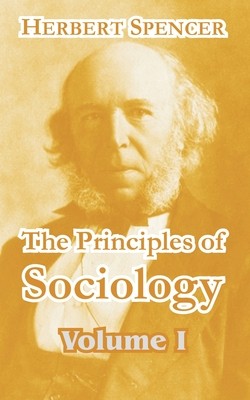
- We will send in 10–14 business days.
- Author: Herbert Spencer
- Publisher: University Press of the Pacific
- ISBN-10: 1410211843
- ISBN-13: 9781410211842
- Format: 13.1 x 20.4 x 2.8 cm, minkšti viršeliai
- Language: English
- SAVE -10% with code: EXTRA
Reviews
Description
Herbert Spencer (1820-1903) was an English philosopher, best known for his scientific writings. Together with Charles Darwin and Thomas Huxley he was responsible for the acceptance of the theory of evolution. His well-known essay on Education: Intellectual, Moral and Physical was considered one of the most useful and profound books written on education. He projected a vast 10-volume work, Synthetic Philosophy, in which all phenomena are interpreted according to the principle of evolutionary progress. Together with Charles Darwin and Thomas Huxley he was responsible for the acceptance of the theory of evolution. Although no longer influential in biology, his extension of his theory of evolution to psychology and sociology remains important. His "Social Darwinism" was particularly influential on early evolutionary economists such as Thorstein Veblen. As subeditor of the Economist (1843-53), Spencer was an influential exponent of laissez-faire. His early book Social Statics (1851) was strongly tinged with an individualistic outlook.
EXTRA 10 % discount with code: EXTRA
The promotion ends in 23d.04:03:14
The discount code is valid when purchasing from 10 €. Discounts do not stack.
- Author: Herbert Spencer
- Publisher: University Press of the Pacific
- ISBN-10: 1410211843
- ISBN-13: 9781410211842
- Format: 13.1 x 20.4 x 2.8 cm, minkšti viršeliai
- Language: English English
Herbert Spencer (1820-1903) was an English philosopher, best known for his scientific writings. Together with Charles Darwin and Thomas Huxley he was responsible for the acceptance of the theory of evolution. His well-known essay on Education: Intellectual, Moral and Physical was considered one of the most useful and profound books written on education. He projected a vast 10-volume work, Synthetic Philosophy, in which all phenomena are interpreted according to the principle of evolutionary progress. Together with Charles Darwin and Thomas Huxley he was responsible for the acceptance of the theory of evolution. Although no longer influential in biology, his extension of his theory of evolution to psychology and sociology remains important. His "Social Darwinism" was particularly influential on early evolutionary economists such as Thorstein Veblen. As subeditor of the Economist (1843-53), Spencer was an influential exponent of laissez-faire. His early book Social Statics (1851) was strongly tinged with an individualistic outlook.


Reviews